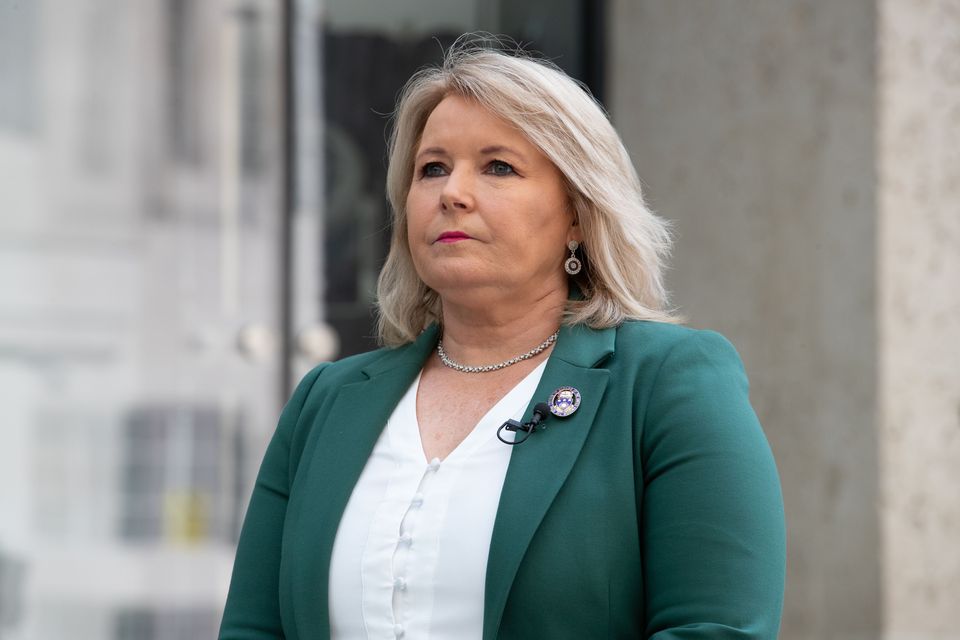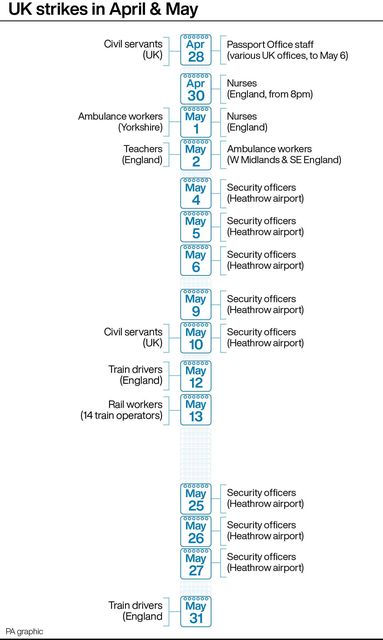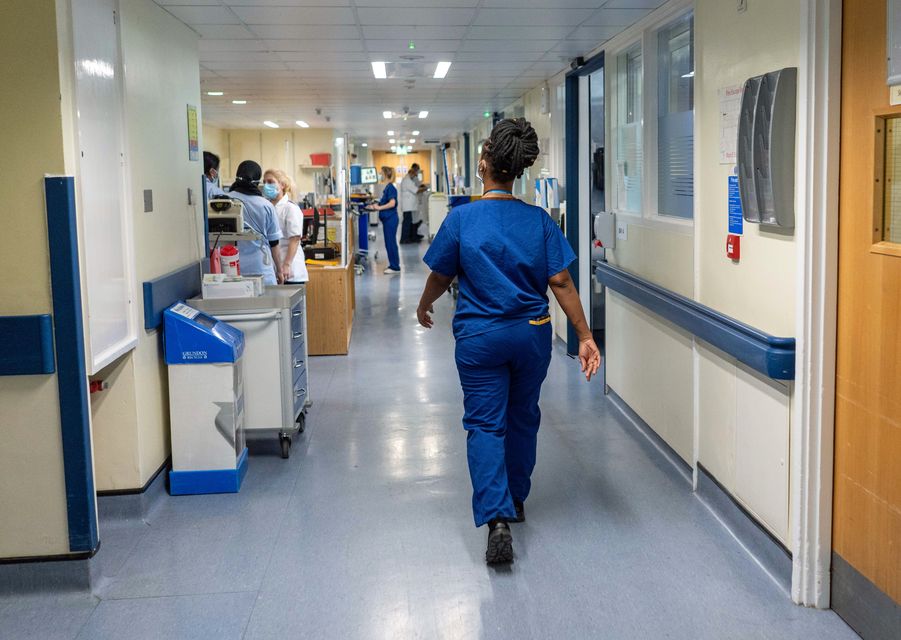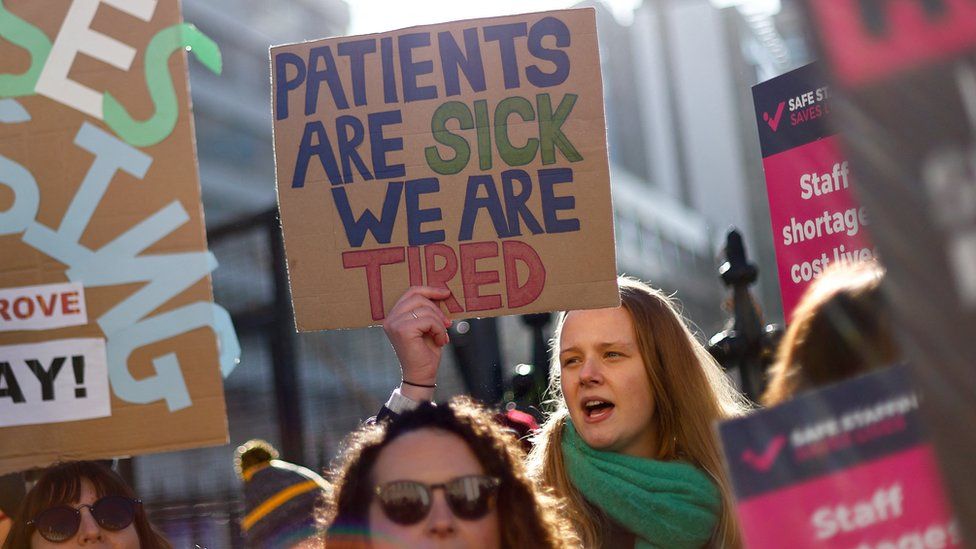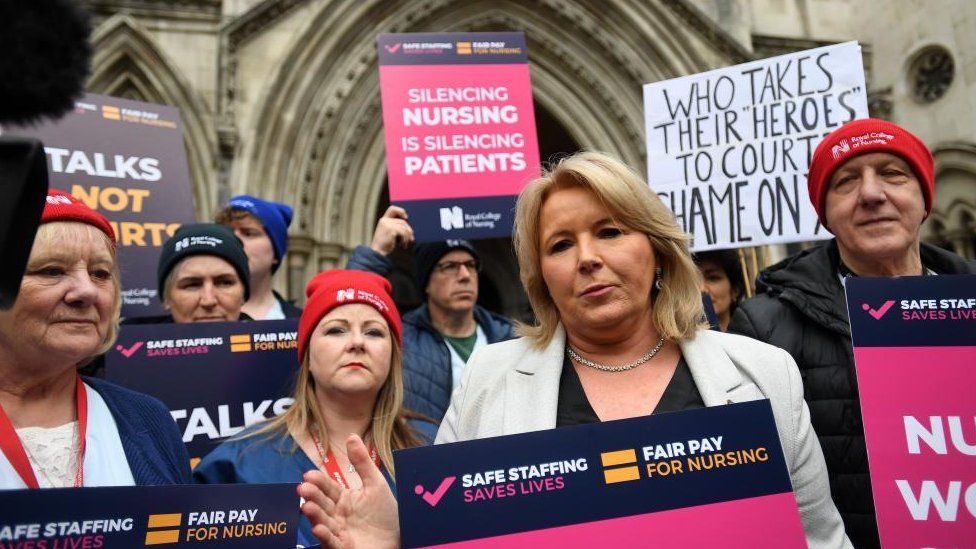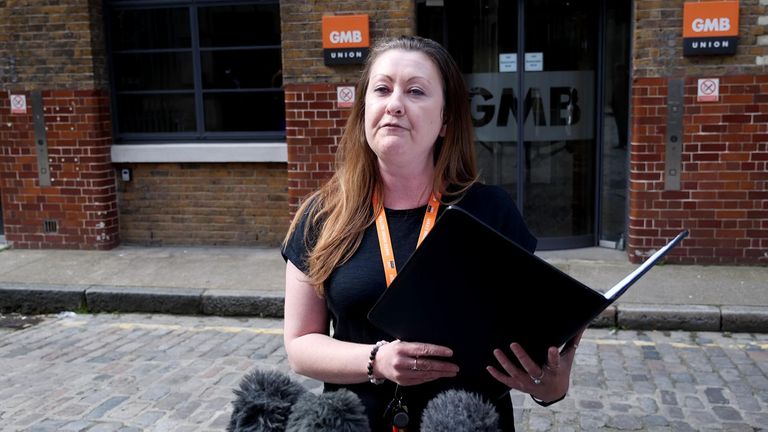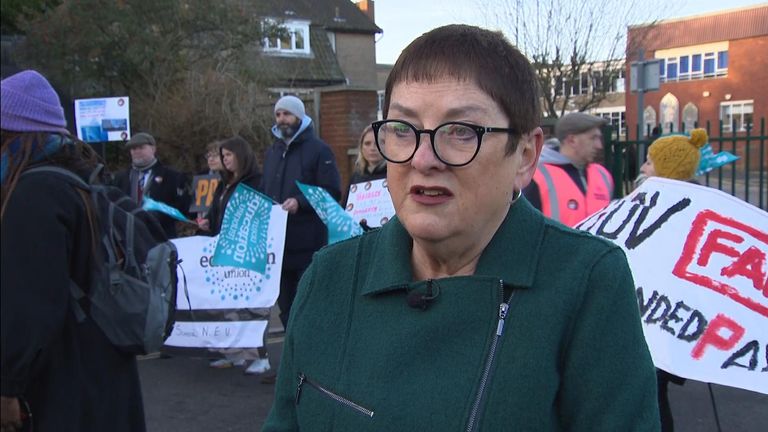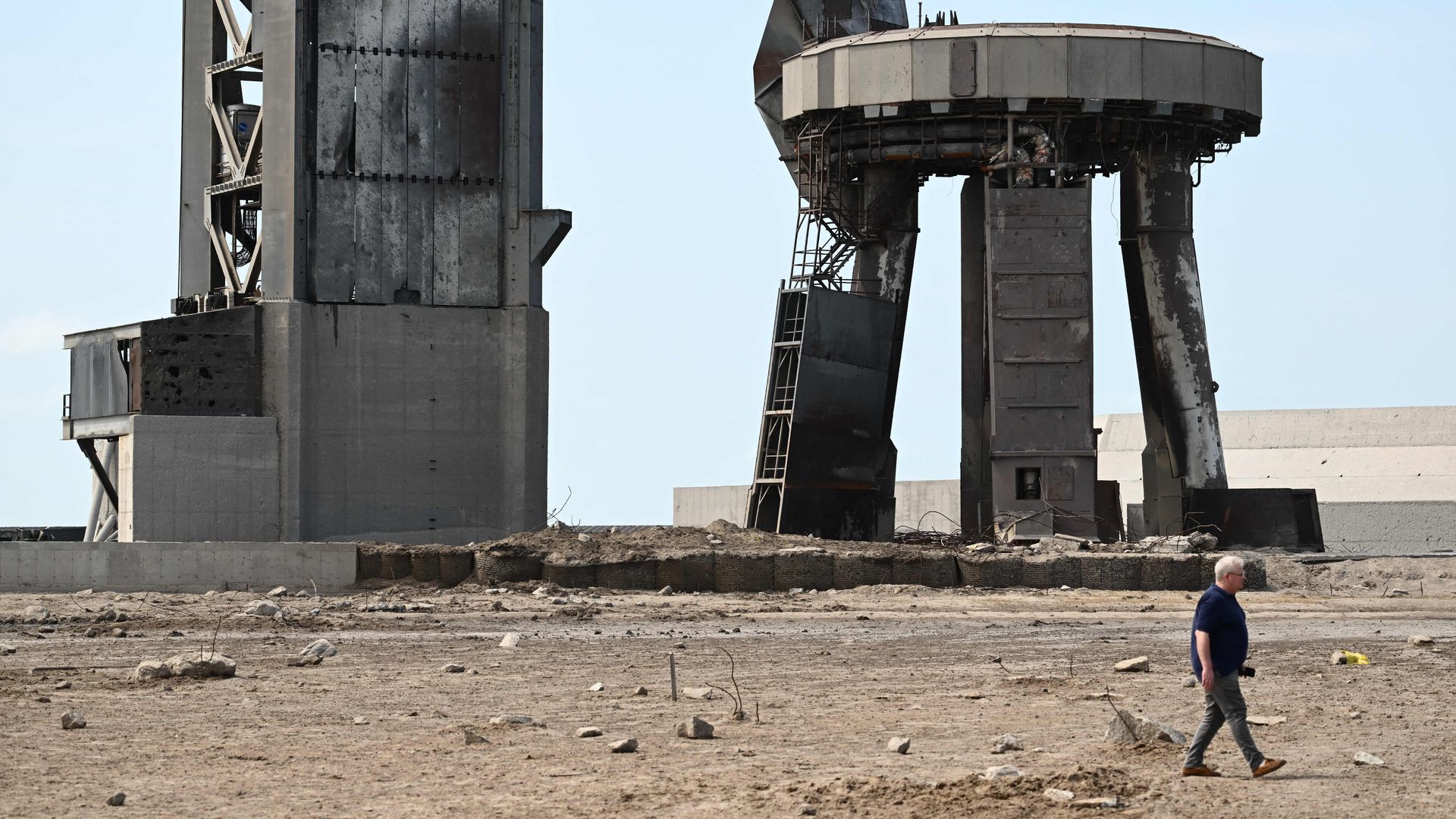
A person walking through a debris field in front of SpaceX's Starship launch pad in Boca Chica, Texas, on April 22. Photo: PATRICK T. FALLON/AFP via Getty Images
Before SpaceX's Starship exploded above Boca Chica, Texas, on April 20, it spread debris for miles and caused the Federal Aviation Administration (FAA) to ground the program to determine what went wrong during the test.
Why it matters: While these types of FAA safety investigations are standard for launches that don't go according to plan, this one could delay future Starship flight tests, which may have cascading effects on SpaceX and its partners, including NASA.
- NASA is relying on Starship's success, as it selected SpaceX to develop a lunar lander variant of the spacecraft to carry two American astronauts to the moon and back as part of Artemis III, which is currently set for late 2025.
Details: The FAA said in an April 20 statement that an "anomaly" occurred during the vehicle's ascent and before the Super Heavy booster was supposed to separate from the Starship spacecraft, forcing SpaceX to trigger the vehicle to explode shortly after liftoff.
- Starship returning to flight will depend on the FAA confirming "that any system, process, or procedure related to the mishap does not affect public safety," the administration said.
- Video taken during the launch and subsequent photos showed that the rocket punched a crater through its launch pad, which generated a massive cloud of dust and threw large chunks of debris far from the launch site.
The U.S. Fish and Wildlife Service (FWS), after its damage assessment of the launch, said concrete chunks, stainless steel sheets, metal and other objects were hurled "thousands of feet away" from the launch pad, while a cloud of pulverized concrete "deposited material up to 6.5 miles northwest" of the site.
- FWS told Axios in a statement its staff members found pieces of debris spread across approximately 385 acres of SpaceX property and Boca Chica State Park, which is leased by the service as part of the Lower Rio Grande National Wildlife Refuge.
- It said no debris was found on refuge lands and no dead birds or wildlife had been reported, but the launch did ignite a 3.5-acre fire south of the pad site on state park land.
- Residents of Port Isabel, a town six miles northwest of the launch site, told the New York Times that at least one window shattered during the launch, while a granular dust coated vehicles and buildings as the debris cloud passed over the city.
What they're saying: After the launch, SpaceX CEO Elon Musk said a water-cooled steel plate the company is developing to reinforce the Starship launch pad was not ready in time for April 20 launch.
- He said the company, based on previous static fires with the Super Heavy booster, expected that the concrete pad would survive at least one launch and decided to proceed with the test.
- "Still early in analysis, but the force of the engines when they throttled up may have shattered the concrete, rather than simply eroding it. The engines were only at half thrust for the static fire test," Musk said.
- The launch pad's destruction may have also contributed to engine failure during the test, as several of the Super Heavy booster's 33 Raptor engines had malfunctioned on the ascent.
The big picture: Though Musk said SpaceX could be ready to launch Starship again "in 1 to 2 months," FAA mishap investigations can take longer.
- For example, the administration's investigation into Blue Origin's failed New Shepard uncrewed launch in September 2022 has been ongoing for more than seven months, though the company expects the rocket to return to flight by the end of 2023, according to Reuters.
Between the lines: Tolerating risk and learning from failures have been central to SpaceX's development process, but too much risk and unexpected blunders may raise safety concerns that the company will have to resolve with federal regulators.
Go deeper: Japan's ispace appears to have failed to land on the Moon
ESA's Jupiter-bound Juice spacecraft has a sticky problem with its radar
Time to shake, rattle, and roll the probe to remove pesky antenna pin
Katyanna Quach
Sat 29 Apr 2023
A tiny pin stuck in place on ESA's Juice spacecraft may be preventing engineers from unfurling its 16-metre-long antenna as it zooms toward Jupiter.
Launched two weeks ago, the probe just started its eight-year voyage to the largest planet in our Solar System to take a closer look at the Jovian moons first spotted by Galileo Galilei: Europa, Callisto, Ganymede, and Io.
Juice won't begin its scientific observations until it gets much closer to its target, the Jupiter system, in around 2031, and is right now unpacking hardware previously stowed away for launch. But controllers are having trouble extending its Radar for Icy Moon Exploration (RIME) antenna, an instrument designed to analyze the Jovian moons' surfaces and examine what might lie beneath it.
Astronomers are particularly interested in finding any hidden liquid oceans flowing beneath the icy crusts of Europa, Callisto, and Ganymede. RIME was designed to probe up to nine kilometers below the surface and see if the theories of vast undersea resources are accurate and how useful they could be.
"Juice's ice-penetrating RIME antenna has not yet been deployed as planned," ESA said in a statement. "During the first week of commissioning, an issue arose with the 16-metre-long RIME antenna, which is preventing it from being released from its mounting bracket."
Engineers believe the issue might be due to a small pin that's got stuck and is hindering the antenna from expanding fully. It's estimated that this pin needs to be shifted just a few millimetres to fix the issue
Launching soon: ESA's Juice to probe Jupiter's moons for signs of possible life
The Register gets up close and personal with ESA's JUICE spacecraft
Juno what? Jupiter's Great Red Spot is much deeper than originally thought
The RIME antenna is currently only extended a third of its full length, according to an image snapped by a camera onboard the spacecraft.

RIME still trying to deploy ... Source: ESA
Mission control is planning to execute an engine burn and rotate Juice in a bid to jostle its components around and warm up RIME to encourage the pin to shake loose.
"Juice is otherwise performing excellently after the successful deployment and operation of its mission-critical solar arrays and medium gain antenna, as well as its 10.6-m magnetometer boom," ESA confirmed.
The Euro space agency said it has a lot of time to fix the antenna's issue since the spacecraft still has two months of planned commissioning left. Juice is set to arrive at Jupiter in the next decade, and begin exploring its moons over the following four years; the mission is expected to last until 2035. ®

